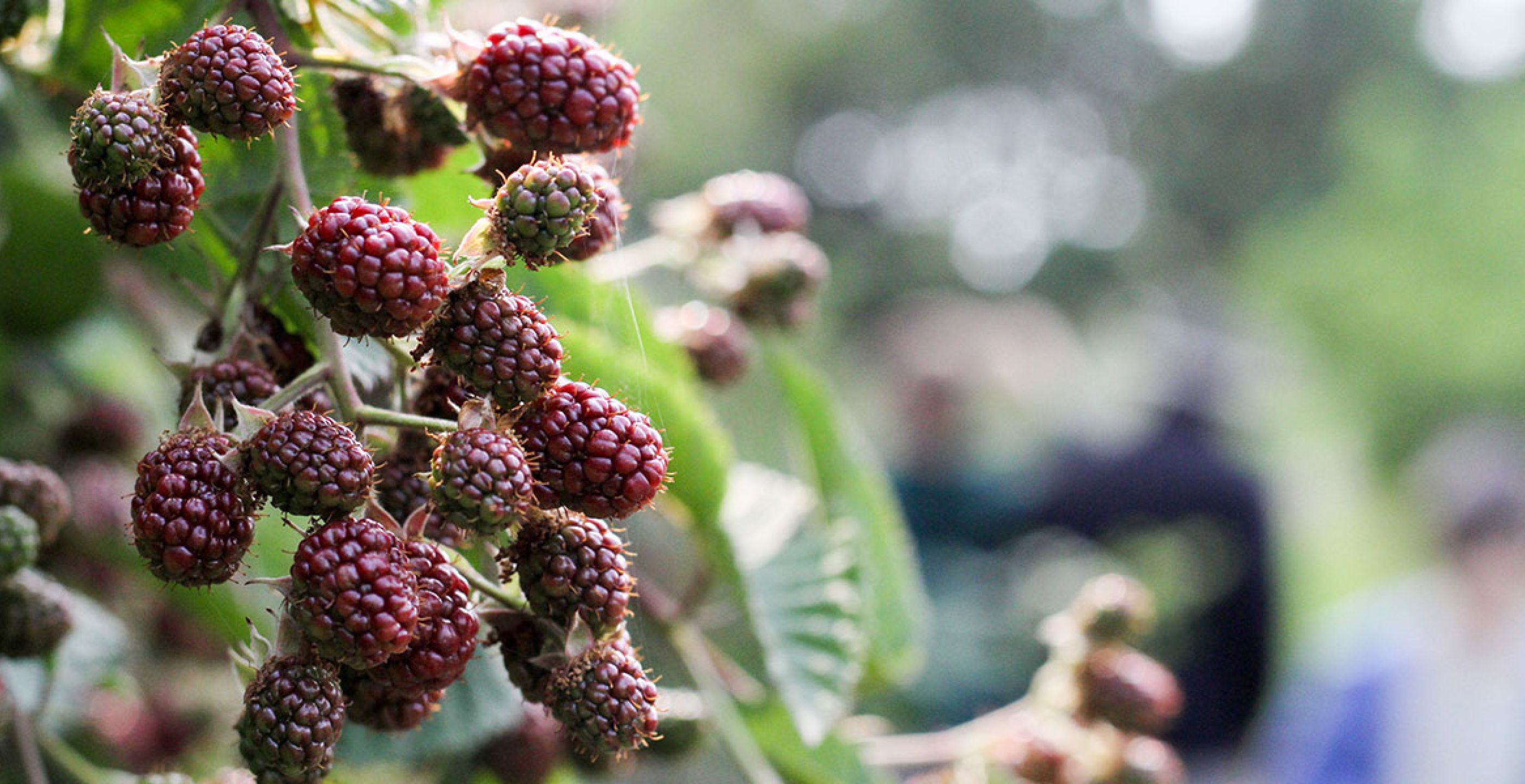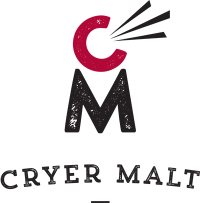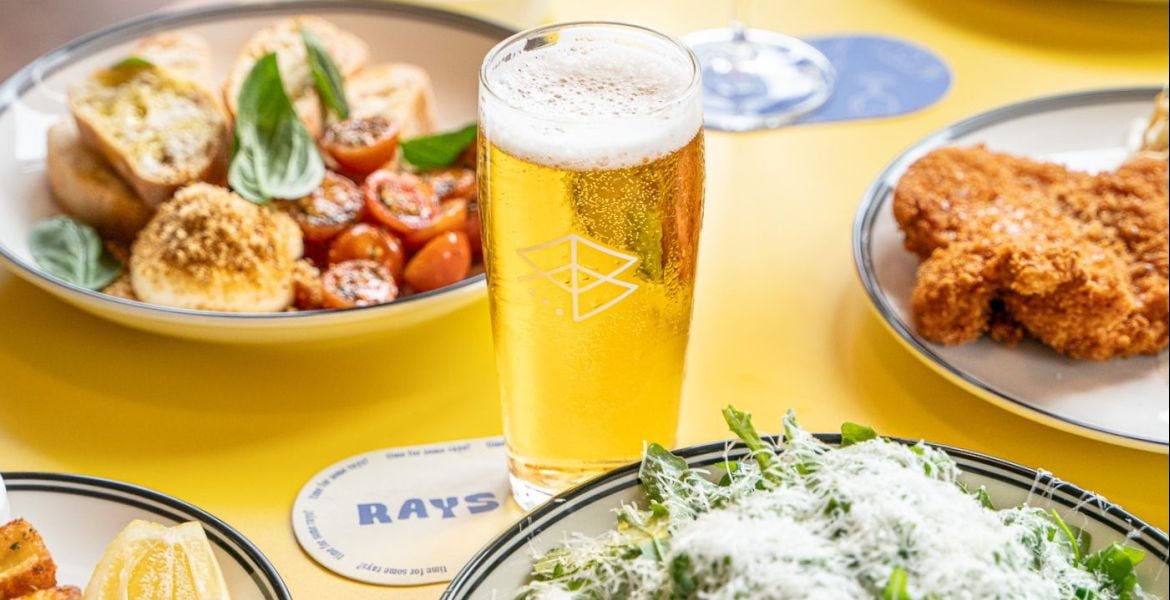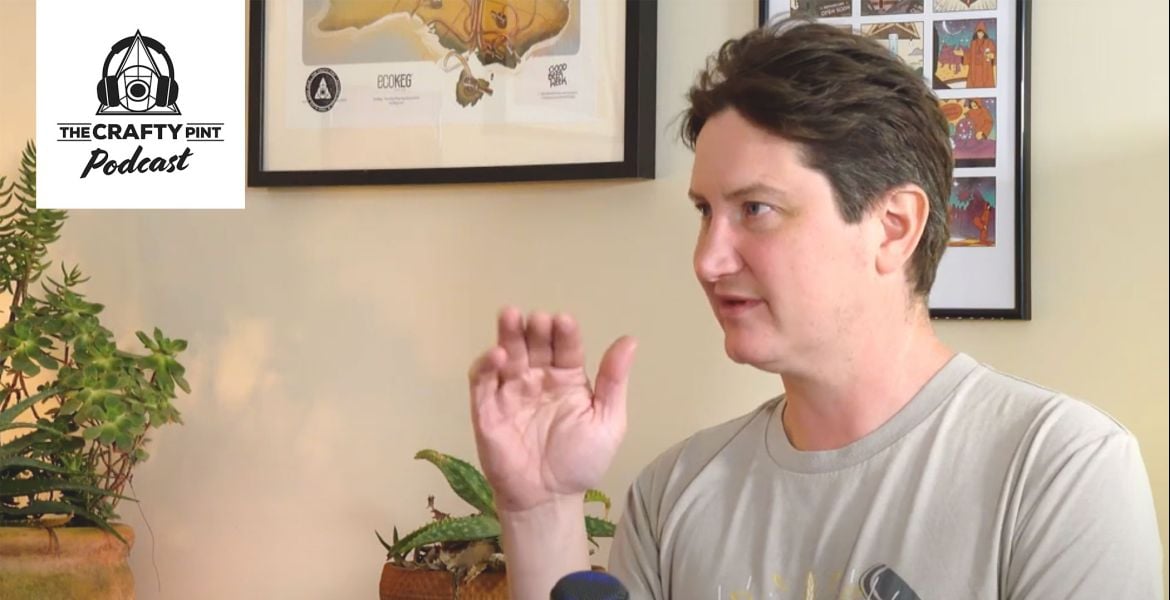If you’ve got suitable tanks, brewing can take place anywhere. But, while brewing is an industrial process reliant on things like stainless and commercial drainage, there are small breweries bringing beer closer to its agricultural origins. Some do it by utilising what’s growing locally, or by using food that’s fine but destined for landfill, while others are forging lasting links with farmers.
For Future Mountain Brewing and Blending, their relationship with Rayner's Orchard goes back to before Ian Jones and Shane Ferguson had even opened their Reservoir brewery. Shane says while they always had plans to work with local growers, their relationship came about more through fortunate coincidence.
“When Ian and I were first building the brewery, I was on a family camping trip in the Yarra Valley and happened to just stumble across Rayner's Orchard,” he explains.
Following an orchard tour with his kids, he struck up a conversation with Len Rayner and son Cam about what he and Ian were planning for their brewery. Soon after, the brewery founders returned to talk about working together.
“They’re firmly a family-oriented business and they’ve got quite a boutique selection of fruit,” Shane says.
“They have a seasonal and evolving orchard all year round.”
Today sees the mixed ferment and barrel-ageing specialists release three beers in a new format for the brewery, with each containing fruit from Rayner's. Born In Time is a golden sour aged with feijoas, Dark Eyes is an amber sour featuring blackberries, and Ramble On Rose uses raspberries along with shiraz lees from Tiny Block Winery.
The first two have been released previously, but each has a new look in clear 750ml bottles. Clear glass is rarely found in craft beer circles – near neighbours 3 Ravens are an outlier, using it for their Nat Rav series – and it's a new approach for Future Mountain. Ian and Shane feel the format helps really drive home the message that each beer is a showcase of the fruits and their seasonality, while also connecting the beers to the world of natural wine.
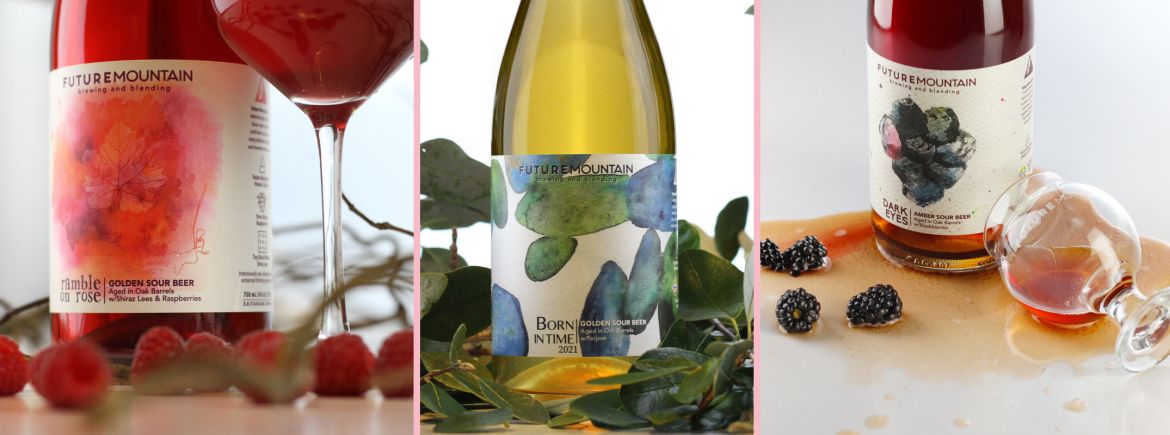
Ian says they work closely with Len and Cam on all the beers they brew with Rayner's fruits, with the conversations about which fruit to use starts about a month out from when they're ready to harvest. It means Ian and Shane know what’s growing well and how the season is going, although when the time for harvest comes, things move quickly.
“Whenever they pick,” Ian says, “we get a phone call and we drop everything and head out there. So it’s on the tree in the morning and in our brewery that afternoon getting processed."
While there’s much that goes into choosing which blend of barrels and sour beer will end up on the fruit, one of the key things they’re trying to achieve is letting the beers be a true expression of the produce from Rayner's.
“If you line five of them up then you can really get an idea of what kind of season it was,” Ian says, adding that there’s been beers they’ve chosen not to release in the past.
“It’s only if they really express the fruit that we get that they go into a bottle.”
It's not just the fruit they're interested in either – what's on that fruit in the orchard comes into play too.
“It’s the yeast and bacteria from the fruit as well,” he says. “So we do want to keep that constant and have that mixed culture from the orchard evolve into our own house culture.”
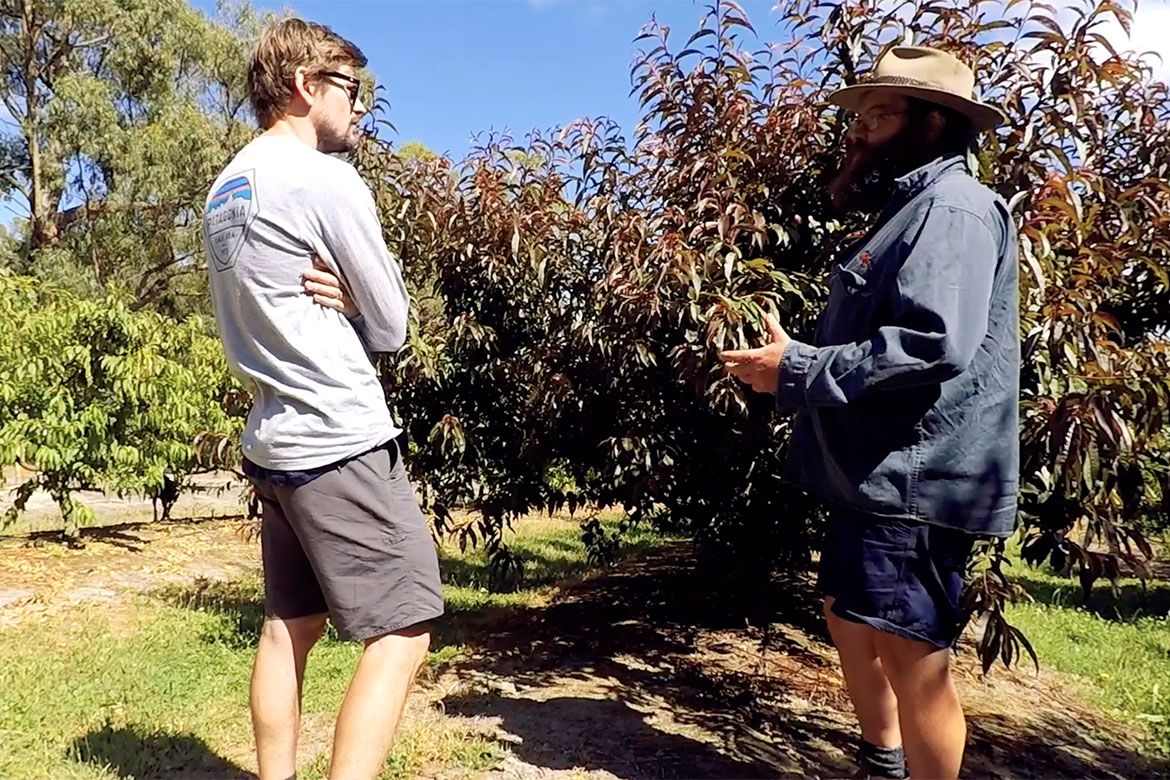
Shane says their understanding of the fruit has evolved hand in hand with their relationship with Rayner's, even if it can be a slow process; after all, they only get one chance per fruit per year, and there's so much to choose from.
“They’ve got about 400 varieties of fruit out there so there’s some pretty interesting and unique fruit,” he says.
As an example, Rayner's grows 17 different varieties of apricot, as well as some incredibly rare fruits.
“During the harvest time of year, they might have a two-month window where they are picking apricots,” Shane says. “Each variety is only harvested in a two-week period, so if you get them at the start, middle and end of the season then they’re very different varieties.
“We always come back from a run out there with a small bag of experimental fruit that we do a trial on and see if it’s something that can work."
Their relationship has brought other benefits too. The Rayner's rely on a model where people tour the farm, so lost upwards of 90 percent of their business due to COVID, making a consistent customer like Future Mountain a valuable ally.
A desire to help growers is in part what’s led La Sirène and Carwyn Cellars to launch their own pair of beers this week. Supernaturally are Australian wild ales made with fresh fruit from Sunland Fresh Fruit, a farm in Cobram near the border between Victoria and New South Wales. La Sirène’s Costa Nikias says while they’ve had many long conversations with the Carwyn crew about working on a beer together, the decision to work with local fruit growers was born out of more recent events.
With growers facing a challenging export market on one hand and a limited number of farmworkers on the other, Costa says they headed north to see what fruit they could get their hands on to support them.
“It was this really good insight into how farmers go from start to finish, and they have the same challenges we have as brewers,” he says. “You work hard to create something and you hope it works out like you think it will, and then you’ve got to make sure you have a channel to sell it into.”
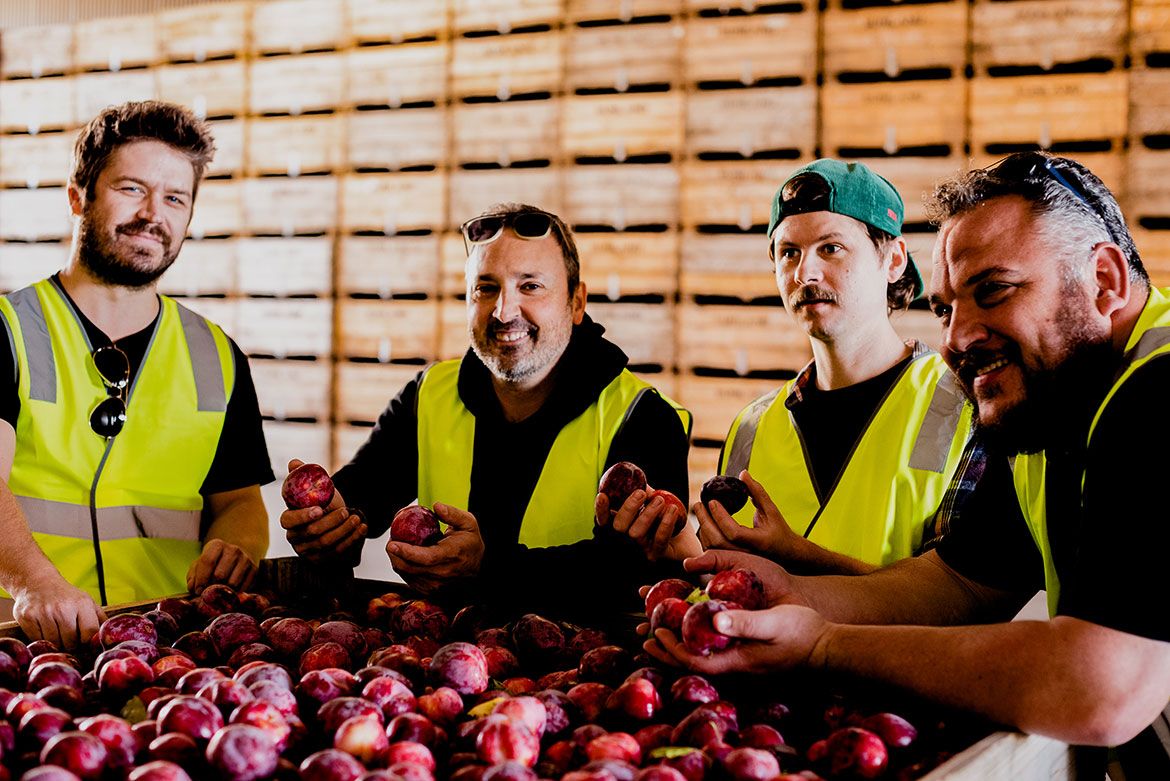
While they’d initially planned on releasing a single beer, they’ve ended up with two: Peach & Raspberry Wild Ale and Plum Wild Ale. The second of those comes from seeing some of the fruit when they arrived.
“We just saw these big wooden crates full of plums and they were just gorgeous,” Costa says. “They were perfectly round, and a lovely bloom, and had that real lavender tinge to them – and the ripeness was just spot on.”
If you want to brew a quality beer using fruit, Costa says working closely with farmers is essential, with the brewery largely getting their oranges for Citray Sour from one farm in Robinvale, also on the Victorian and NSW border.
“It’s great working directly with farmers because the integrity of the fruit is everything in these beers,” he says.
“This is really premium fruit that may not look the best, and some supermarket stores might not take it, but the quality is there.”
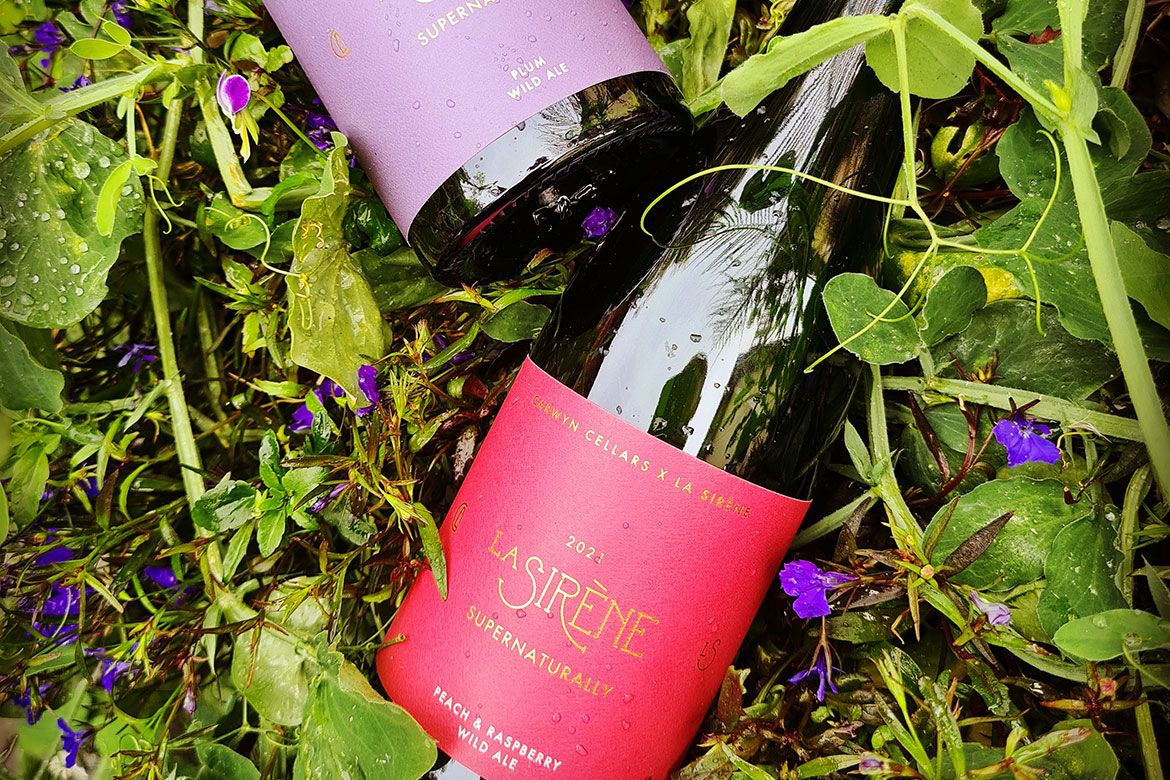
While the fruit they got from Sunland might represent a small order for the growers, Costa thinks they’ve built a relationship via the beers that will last for years to come. But what makes him really excited about the process is being able to connect beer more closely to agriculture with a beer in which Victorian produce is the hero. It’s something they’ve always tried to do at La Sirène by embracing the surrounds of their brewery in Alphington and brewing beers that aim to express a place.
“It was great," he says. "We had a team of ten or 12 people between the Carwyn staff and our staff just cutting up fruit and getting back to basics," adding that with so much of brewing taking place in factories, "it’s a vacuum, you can get really sucked into the production side of hop contracts, malt contracts, malt consistency, extract levels, efficiencies; all that sort of stuff.”
Ian's thoughts on working closely with growers mirror Costa’s, believing their spring releases can help tie beer and agriculture more closely together.
“For me, it’s really about getting away from that supermarket mentality of having something available all year round," Ian says. "Where you have kettle sours with a purée in them which you can get all year.
“What we’re doing is a once a year thing, where we get one shot and it’s all about seasonality.”





